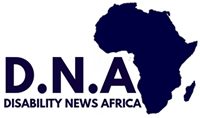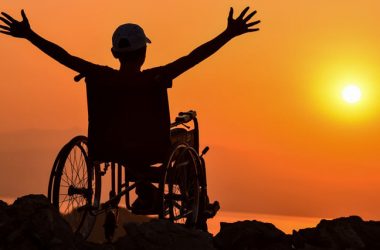As part of their affiliation with public universities, Ghana’s colleges of education have adapted some of the policies and structures of their mentor institutions, but many have overlooked the importance of the disability services offices in ensuring that institutions meet their responsibility for ensuring equal access and support for people with disabilities.
Ghana’s quest to achieve quality education has compelled the nation to undertake reforms in its teacher education sector in recent times. Teacher education refers to the policies and procedures designed to equip prospective teachers with the knowledge, attitudes, behaviours and skills they require to perform their tasks effectively in the classroom, school and wider community.
The importance of teachers
According to UNESCO (2012), teachers determine our collective ability to innovate, invent, and to find solutions for tomorrow. As a result, nothing is more important than providing them with the requisite knowledge and skills to enable them to perform their roles effectively.
In Ghana, the Colleges of Education (COEs) have been mandated by the Colleges of Education Act, No 847 to train students to attain the necessary professional and academic competencies for teaching in pre-tertiary institutions and non-formal education institutions. Hitherto, the Colleges of Education were pre-tertiary institutions and offered a Diploma in Basic Education.
However, with the passage of the Education Act, No 778 in 2008, the colleges of education attained tertiary status. The Colleges of Education Act, No 847 was passed to give legal backing to the new status of the institutions in 2012.
Currently, the colleges offer four-year Bachelor of Basic Education programmes. The Bachelor of Education curriculum aims to improve the learning experience of pre-service teachers who are ready to teach, inspire and educate Ghana’s young people so they can lead the country’s progress and prosperity (T-TEL, 2020).
Affiliations
As part of the reforms to boost teacher training in the country, the colleges have been affiliated to some public universities in Ghana, namely, the University of Ghana, University of Cape Coast, University of Education, Winneba, Kwame Nkrumah University of Science and Technology and the University for Development Studies, to facilitate mentorship and ensure that colleges offer the quality of teacher education the country desires.
The upgrading of the COEs to tertiary status and their affiliative relationship with the public universities seem to have compelled them to adopt some of the applicable policies and structures of their mentors. These concern governance, quality assurance, academic departments, units, and offices. However, one vital office that seems to have been ignored by the college of education is a Disability Services Office or DSO.
An underlying philosophy
The philosophy that underpins Ghana’s inclusive education, the international conventions to which Ghana has assented, and national legal frameworks and policies advocate that regular schools, including colleges of education, should aim to include all children, regardless of disability, special educational needs or any other mitigating circumstances.
The tenets stipulated in international conventions such as the Universal Declaration of Human Rights (UDHR) of 1948, the Salamanca Statement of 1994, the United Nations Convention on the Rights of Persons with Disabilities (2006), and the UN Sustainable Development Goal 4 require educational institutions in Ghana, including Colleges of Education to establish mechanisms to facilitate access for persons with disabilities.
Further to this, Ghana’s own 1992 Constitution, the Persons with Disability Act 715 of 2006, and in its Education Strategic Plan 2018-2030 all require educational institutions to have inclusive environments for persons with disabilities to improve access.
As colleges have adopted some of the features of public universities, then it is imperative they also take steps to establish disability offices, which are key units of their mentor universities.
Since it has been acknowledged that higher education plays an important role in society by increasing opportunities and assisting individuals and communities to achieve their potential, persons with disabilities in Ghana seeking access to colleges of education are, rightly, increasing their numbers. This trend leads to questions concerning the availability of DSOs to serve the interests of these constituents.
Functions of the disability services office
The disability services office provides support and advice to higher education institutions to enable them to achieve access and success for persons with disabilities.
Specifically, the disability services office serves as an avenue for collecting and keeping data on students with disabilities in higher education institutions.
It also advocates for the management of higher education institutions to recognise disability as a valued aspect of diversity and to embrace access to higher education for persons with disabilities. The unit also offers advice and assists institutions to identify and install the infrastructure needed to ensure the institution is disability friendly.
Through this, higher education institutions, including COEs, are able to provide persons with disabilities with reasonable accommodation and the adaptations needed to facilitate educational equity and promote inclusion.
This includes relevant teacher education. Though the main mission of the disability services office is ensuring persons with disabilities have access to and achieve success in higher education, in reality disability services offices are as diverse as the educational institutions they serve.
Potential benefits
Evidence suggests that there exists stigma or discrimination in relation to persons with disabilities in schools in Ghana. Disability service offices can, therefore, assist colleges of education to develop and implement disability-friendly policies and procedures to curb this phenomenon. This can help to remove physical, policy, information and attitudinal barriers that may hinder persons with disabilities from successfully pursuing teacher education.
Furthermore, disability service offices can assist colleges to coordinate the services required by persons with disabilities. Lastly, when colleges establish disability service offices, they may be able to offer persons with disabilities a wider range of services to enable them to reach their educational goals.
When access and success are facilitated in colleges, it will help to increase the options for persons with disabilities seeking to study in higher education institutions.
It is only when persons with disabilities are offered the necessary support to enable them to graduate as teachers that they can be recruited by the Ghana Education Service to teach in our schools, earn incomes and improve their livelihoods. Teachers with disabilities may also serve as role models and help to change negative attitudes towards persons with disabilities in the Ghanaian community.
Sandra Tsoenemawu Sikanku is a tutor at Komenda College of Education, Ghana, and an advocate for persons with disabilities. She may be reached at sandra.sikanku@gmail.com.
Source: University World News






